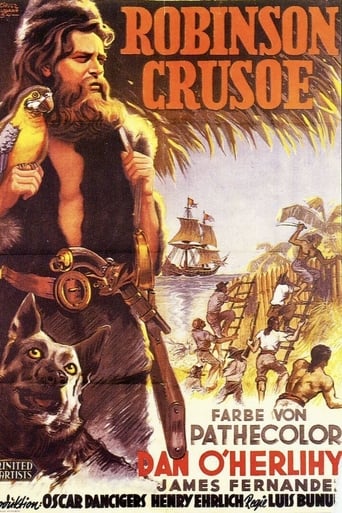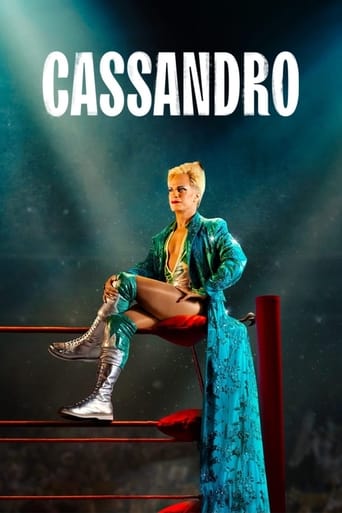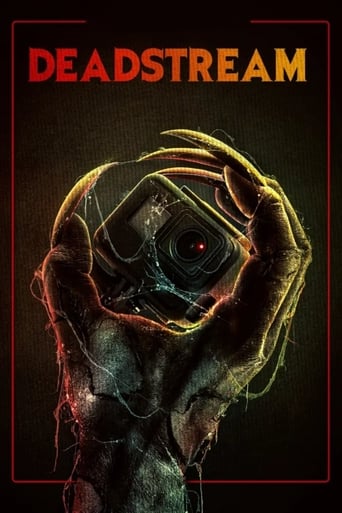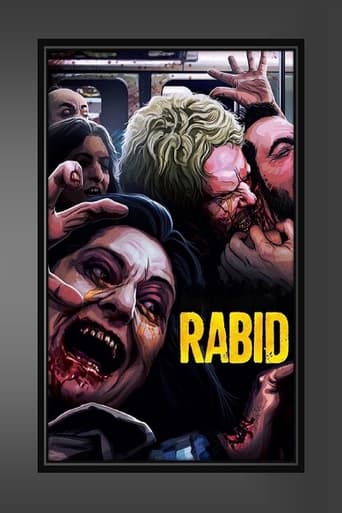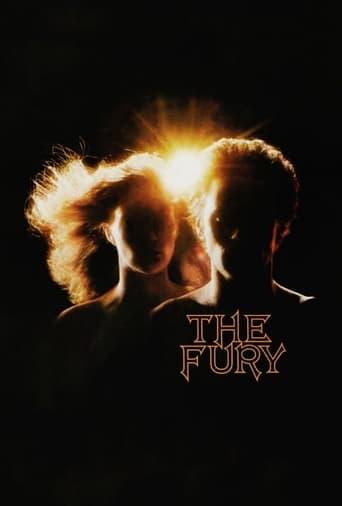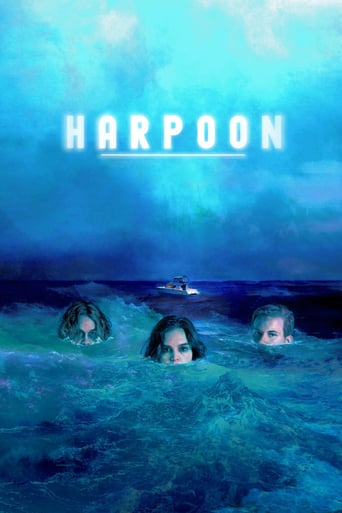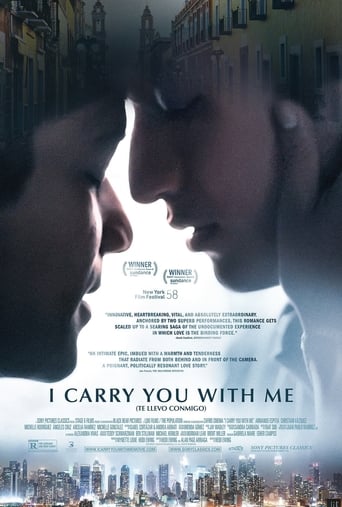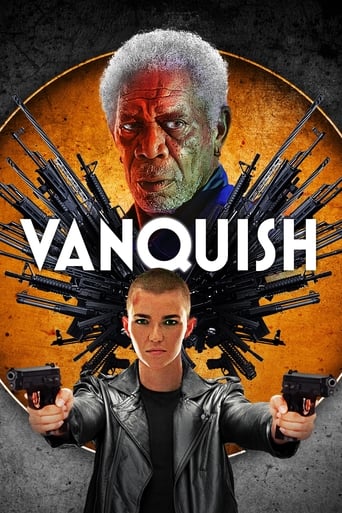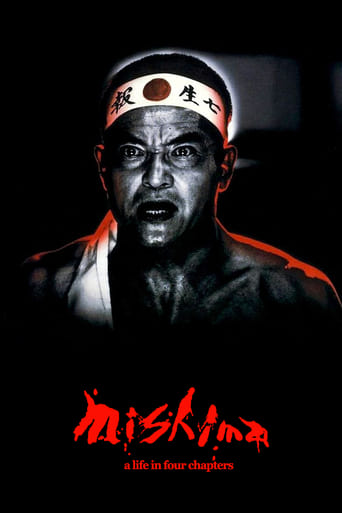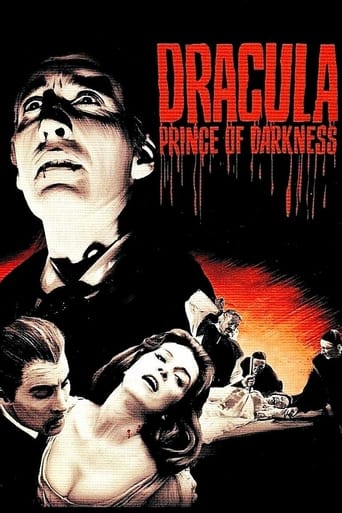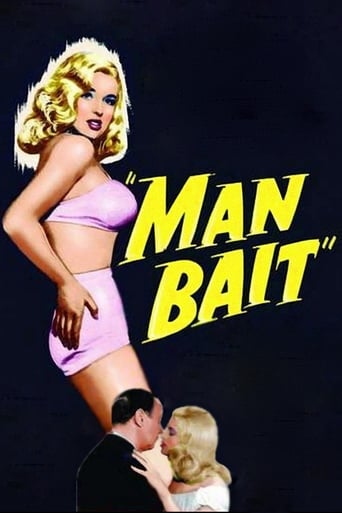


The Last Page
A married bookstore owner is blackmailed after he makes a pass at his new sexy blonde clerk.
-
- Cast:
- George Brent , Diana Dors , Marguerite Chapman , Raymond Huntley , Peter Reynolds , Eleanor Summerfield , Meredith Edwards


Similar titles
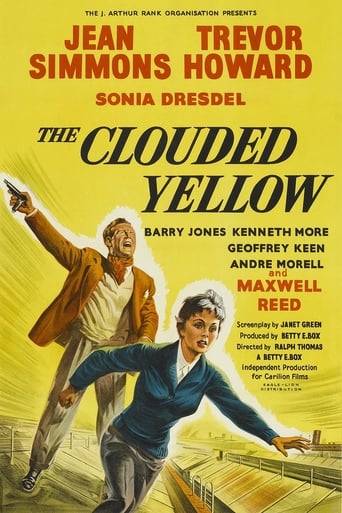
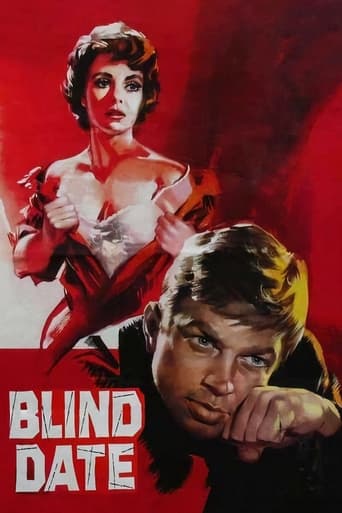
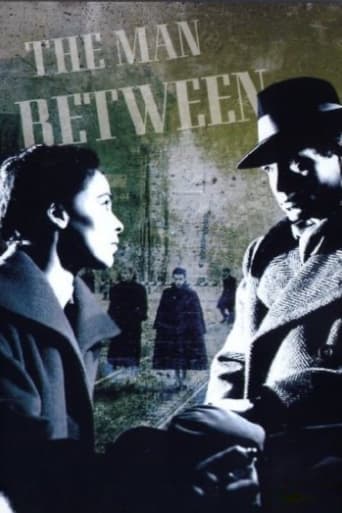
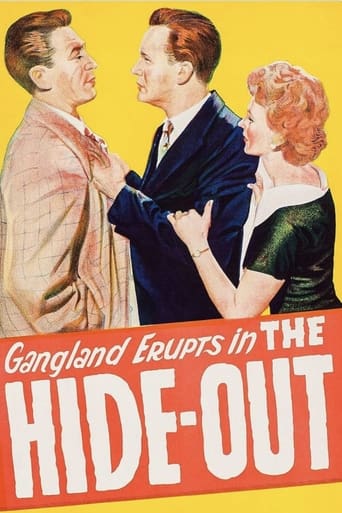
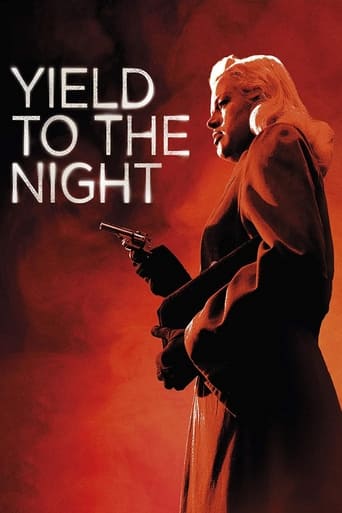
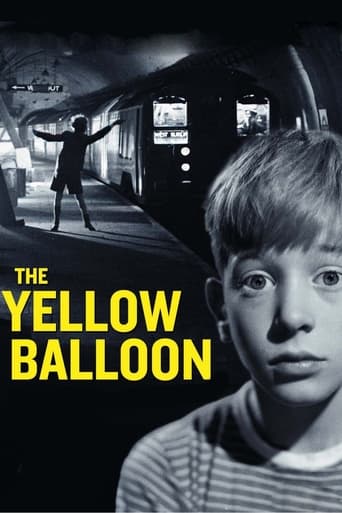
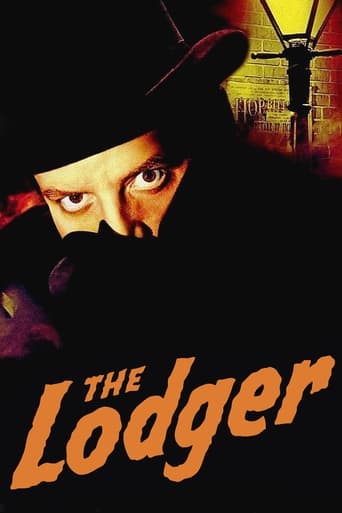
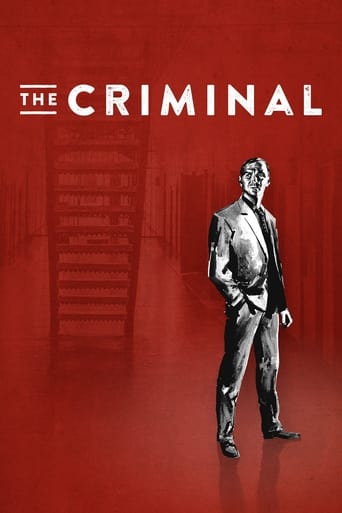
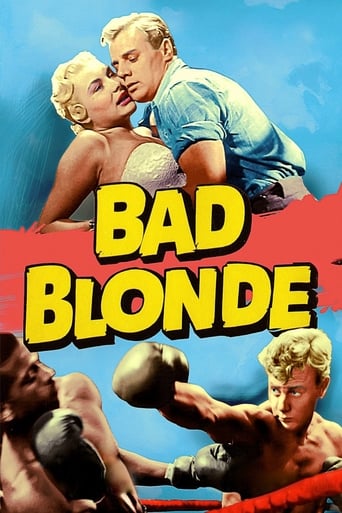
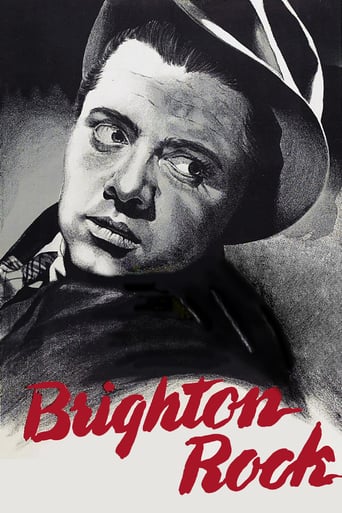
Reviews
Very disappointed :(
Excellent, Without a doubt!!
Admirable film.
I wanted to like it more than I actually did... But much of the humor totally escaped me and I walked out only mildly impressed.
Released in the US under the more provocative title "Man Bait", this was the first of 29 Hammer films directed by the studio's best and most prolific director Terence Fisher. As with most other Hammer films of the era, it is a B-film noir with a Hollywood star of yesteryear in the lead role. In this instance, the actor in question is George Brent, one of Ireland's first film stars who, like me, was from County Offaly. My grandfather worked as a film projectionist for over 30 years and he was also a big film buff so he was always proud that Offaly had a homegrown star! Brent - who had completely lost his Irish accent by this time which disappointed me slightly if I'm honest! - is no Cary Grant when it comes to charisma but he's quite a good leading man. Only 19 or 20 at the time that the film was made, Diana Dors is extremely good as Ruby Bruce, a sweet, slightly naive girl who falls in with the wrong man which ultimately costs her her life. The film has a good supporting cast, including Raymond Huntley (the best actor in the film, he later appeared in Fisher's "The Mummy"), Peter Reynolds, Meredith Edwards, Marguerite Chapman and Eleanor Summerfield (whose husband Leonard Sachs and son Robin Sachs graced later Hammer films). It has a strong script with some nice surprises and Fisher brings his usual finesse to the project. It's easy to see why Hammer engaged his services so often after this.Notwithstanding my rewatch of "Dracula" as a tribute to the late, great Sir Christopher Lee last week, this is the first Hammer film that I have watched in about six weeks so it's nice to get back into the saddle with this great little thriller. I tend to view Hammer films as being pre and post The Curse of Frankenstein and this is one of the best of the "pre" films that I have seen, after "X: The Unknown" and Mantrap".
A lot of people seem to have noticed that there's not much logic gone in to this film . Before we start dishing out awards and starting up a Nobel prize for self congratulations let's be entirely honest in saying it's impossible not to notice the constant and flawed thinking that seems to have gone in to almost every scene . My own personal complaint with MAN BAIT from the outset is that two of the main characters are American living in London in the early 1950s . Let's think about this . American won the war, became a superpower overnight and was winning the peace in spectacular fashion while Britain also won the war and lost the peace along with the empire so badly that the standard of living at this time wasn't much better than in the defeated axis powers . Shocking to think that when this film was produced petrol rationing had just ended and certain foodstuffs were subject to rationing in Britain and yet a couple of Americans are quite happy to live in a starving , rain soaked archipelago where fridges and car ownership would be fairly unknown but power cuts would be common . You can understand the producers wanting to bring in a couple of American actors because it makes American distribution of the film more attractive . You can't help asking would it not have been better if the production team had concentrated on telling a more credible story This is a pity because you can easily see the potential that MAN BAIT had in wanting to be something of a British noir classic . In fact just reading the plot summary on this page finding himself attracted to a pretty blonde clerk that leads to a plot of blackmail and murder so the bare bones of a good involving thriller are there . However it's the way the story unfolds that is a serious problem and undermines most of the potential . People don't do anything in a logical manner and they don't react to situations that you would recognise as being realistic which means the only thing you'll remember from this film is that it starred Diana Dors when she was a starlet of British cinema and that many of the people behind the scenes went on to make Hammer studios a successful horror film franchise
The Last Page (AKA: Man Bait) is directed by Terence Fisher and adapted to screenplay by Frederick Knott from James Hadley Chase's story. It stars George Brent, Marguerite Chapman, Raymond Huntley, Peter Reynolds and Diana Dors. Music is by Frank Spencer and cinematography by Walter J. Harvey.John Harman (Brent) is a London bookshop manager who finds himself blackmailed by his busty young assistant, Ruby Bruce (Dors), and her new ex-convict beau Jeffrey Hart (Reynolds), when he foolishly steals in for a kiss during after hours stock taking.Bookshop Noir.British Hammer and American Exclusive teamed up to produce a number of low budget crime dramas in the early 1950s, often using American stars and directors blended in with British actors, they were produced in Britain in next to no time. The Last Page is a safe viewing for the undemanding film noir fan. Terence Fisher would become a legend amongst British horror fans (rightly so) for his work on Hammer's reinvention of the Universal Creature Features. Here he crafts a nifty atmospheric melodrama without fuss or filler, while just about managing to stop the flaws and daftness of plotting from sinking the picture.Story has some interesting noirish characters and themes. The man who begins to pay for a moment of weakness, the young shapely gal in over her head-lured to the dark half by a well spoken criminal element, while some secret passions amongst the staff of this particular bookstore come to the fore once things inevitably go pear shaped. The setting is a doozy as well, this bookstore is perfectly antiquated, so much so you can smell the leather bound novels nestling on the shelves. Walter Harvey's (The Quatermass Experiment) photography ensures that shadows feature throughout, and there's the odd macabre touch that befits the writing of Frederick Knott (Dial M for Murder/Wait Until Dark).Cast are professional to the last. Brent (The Spiral Staircase) and Huntley (I See a Dark Stranger/Night Train to Munich) are the epitome of gentlemen in a rut, stoic and stiff, grumpy yet gritty, but nicely portraying men we expect to appear in a bookstore noir. Chapman (Coroner Creek) has an abundance of hard looking sexuality and Reynolds has a spiv nastiness about him, very cold but charming. But it's Dors who holds all the aces, she would impress herself upon many a red blooded male during three decades of British film and TV. Here at aged 21, as Ruby, she's a curvy blonde babe with full lips, a gal who understandably turns the heads. The character is tardy as well, hardly a crime, but mostly in Dors' hands she's believable as a girl clearly out of her depth, she's not a femme fatale, she's a weak willed person hurtling towards film noir doom. It's here where this British B noir gets its worth.It's not a great film by any stretch of the imagination, but it is a good one considering the modest budget afforded it. There's dumb decisions made by characters, holes of plotting and the ending fails to seal the deal after the hard noirish mood eked out by Fisher, Harvey and Dors. However, as film noir time fillers go, it's well worth checking out. 6.5/10
In 1950, before Hammer made a name for itself with a memorable horror output, it set up a deal with American producer Robert L. Lippert to make a dozen or so low budget crime dramas, all of which were to be shot in the UK. In all the arrangement lasted for some five years, and utilised the fading star qualities of such past-their-sell-date American talent such as Dane Clark, Paul Henreid, Lizabeth Scott and George Brent, as well as leading British character actors.None of the films are of the front rank, being issued originally on the bottom half of double bills. Hammer may not have established itself as a memorable producer of noir on the basis of this transatlantic deal, but the results have been unfairly neglected (being the basis of only a passing reference in the official history of the studio for instance).Criticism of the films, apart from focusing on their small budgets and hand-me-down leads, has generally dwelt on the success or otherwise of transplanting an American hardboiled genre into a different soil. Certainly the first of those made under the new arrangement The Last Page (aka: Man Bait, 1952) is example. Far too genteel to be successful as more than a mildly suspenseful thriller, its impact is further affected by the unassuming performance of lead George Brent - an actor whom Betty Davies apparently liked as a partner on screen as it was so easy to steal the picture from him! Brent plays the manager of a bookshop, hardly the first choice for a thriller/ noir setting (although one makes a memorable appearance in The Big Sleep) who is blackmailed by the bad blonde of the title - no less than Diana Dors, an early screen role. It was an early credit too for one of Hammer's best directors Terence Fisher, though again this critic, at least, thinks he remains a minor talent. Like practically all the Hammer films in this series, the title was changed for the American market and 'Man Bait' certainly sounds more the job for the pulp world that the films inhabit. It also places Dors firmly at the centre of this film with a fine sense of atmosphere - having worked in the book trade for some years I found the dated interiors and procedures especially fascinating - while some other, equally effective location shooting amidst a now-lost London adds to the charm.

